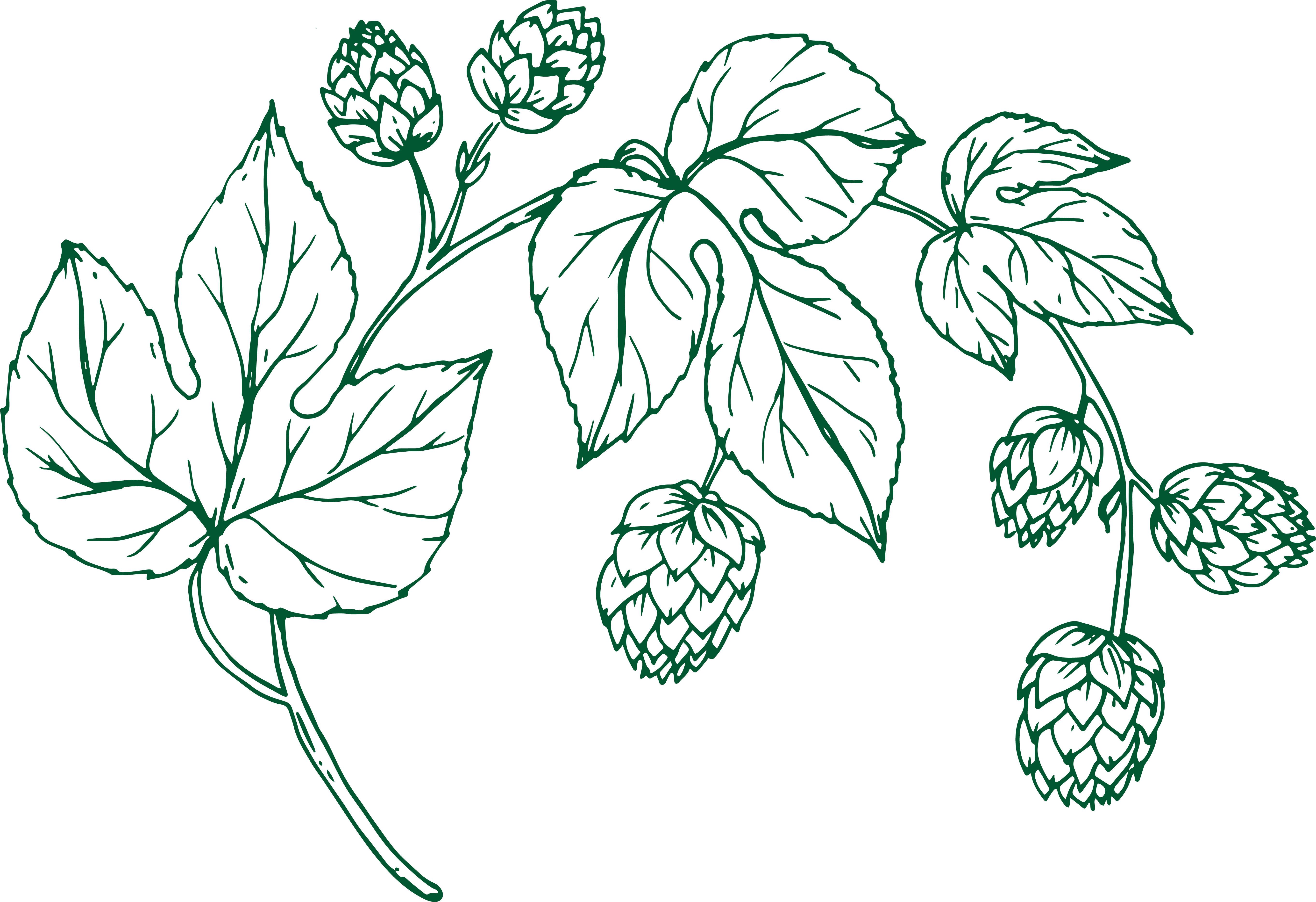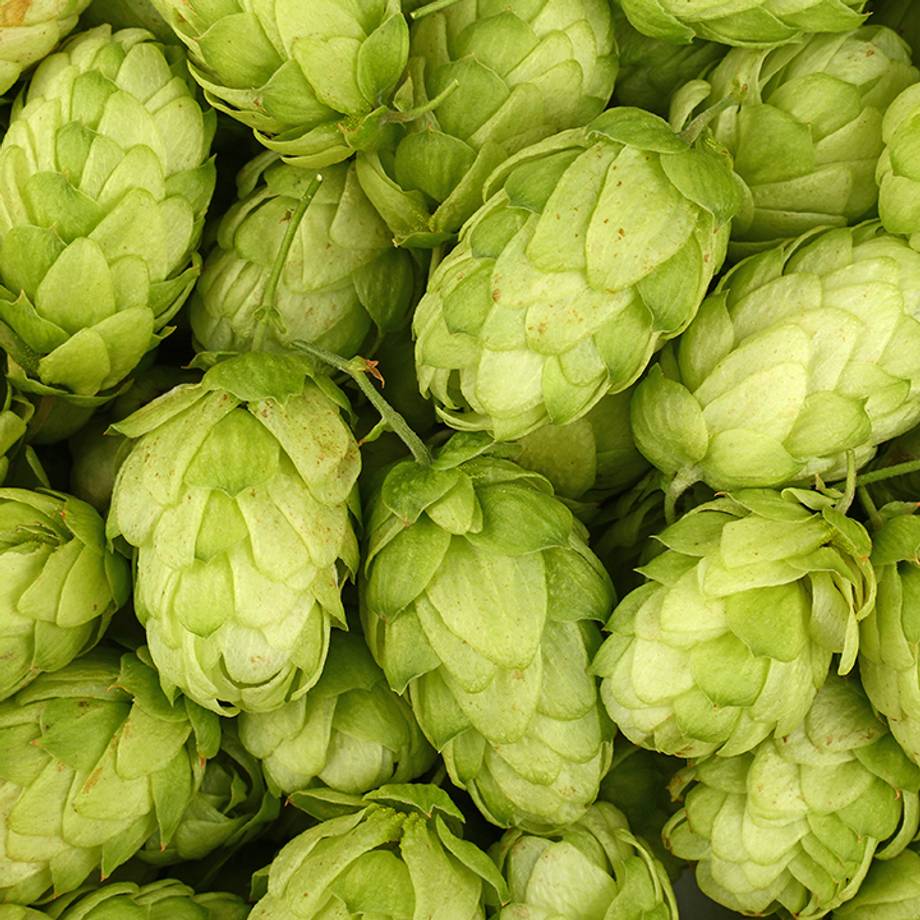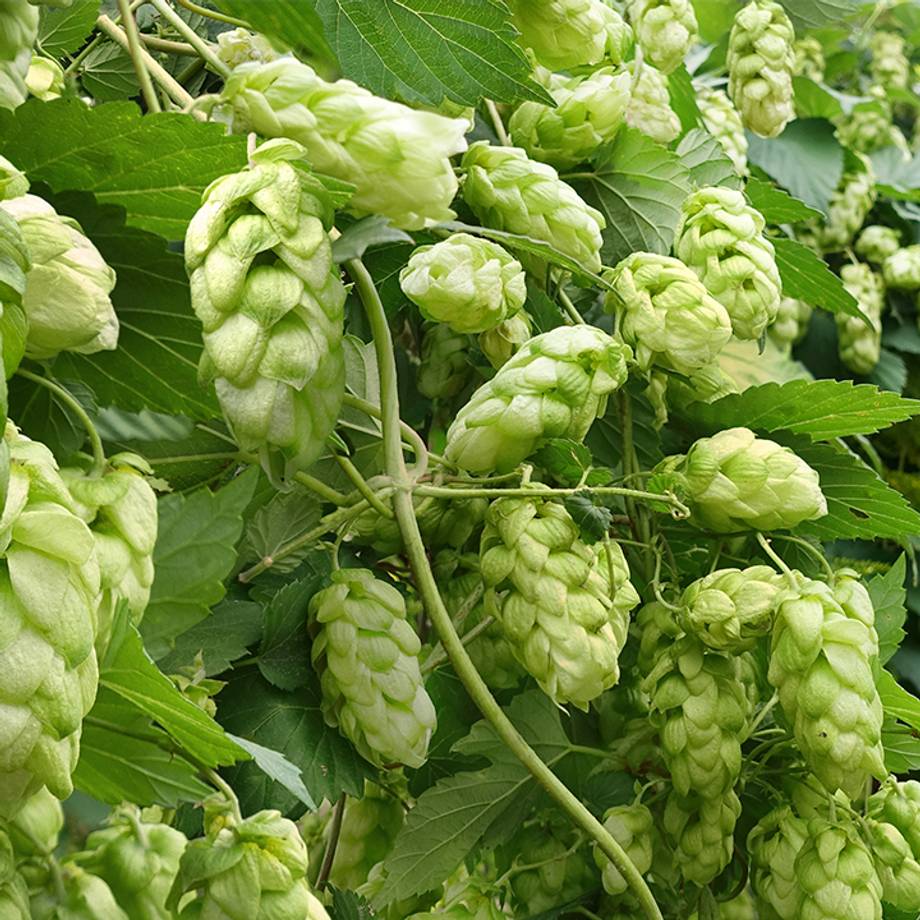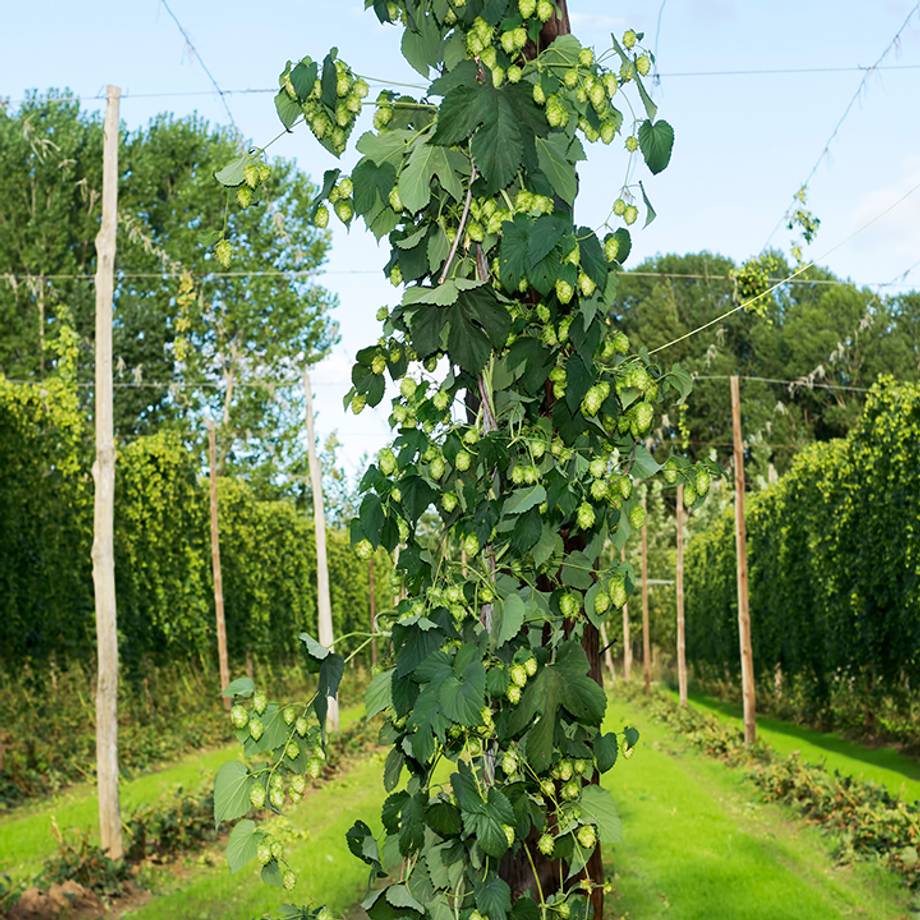
More Hops info
The Old English word "hoppan" means "to climb" or "to leap."

Hops, a favorite among brew masters, is not only a key ingredient in beer making but also a valuable herb in the world of herbalism. Its sedative effect makes it a go-to for those seeking to soothe nerves and promote relaxation.* The flower, also known as strobile, is commonly used in teas, tinctures, and supplements to support overall nervous system health.*
It's also a mild sedative, making it ideal for those struggling to fall asleep.* Because of its gentle nature, it's a popular ingredient in general herbal formulas and is often used in children's remedies.

In Norse mythology, the god Odin discovered the magic of brewing beer by hanging himself from the branches of a sacred tree called Yggdrasil. This ash tree is believed to have roots in the underworld, stretch up to the heavens, and span nine realms. As Yggdrasil hung from the tree, he saw the runes, or symbols, of the Norse alphabet, which he then used to create the first beer. Hops was first used in beer making in Germany during the Middle Ages, where it was prized for its bitter flavor and ability to provide natural preservation.

This stunning climbing plant belongs to the hemp family and is related to cannabis. It’s widely cultivated in temperate climates throughout the world. Hops is native to Europe but has since been introduced to other countries and thrives here on the West Coast. This perennial plant can grow up to 25 feet tall and produces fragrant cones, which are essentially clusters of flowers. These bitter cones are commonly used in the production of beer.
Hops grows best in well-drained soil and with lots of sun but can tolerate partial shade in hot climates. It’s sensitive to drought and requires regular watering. It also has a unique ability to pull and absorb moisture from the air, making it a great plant to grow in humid environments. In the U.S., hops typically grows in the Pacific Northwest and regions with similar climates.
Products that contain Hops
Additional Information
Legal Disclaimer
The information and other content in this article are designed to provide a general overview of the botany, cultural history, and traditional uses of this herb. It is not intended and should not be construed as health advice. Every person is unique and you should consult with your health care provider before using any herbal product or supplement.
Become an Herb Nerd & Get 10% Off!
Herbal tidbits, DIY plant projects, exclusive discounts, and recipes to follow the seasons delivered straight to your inbox.



